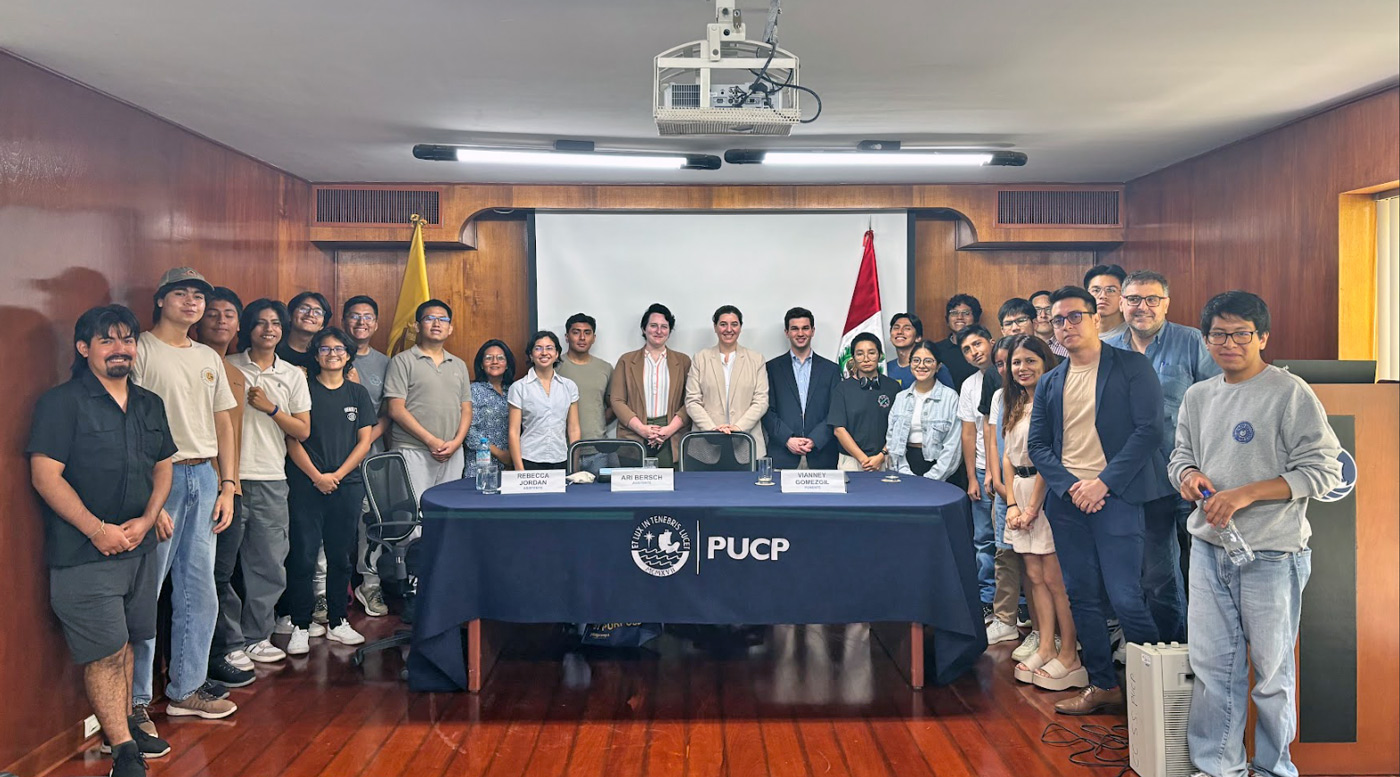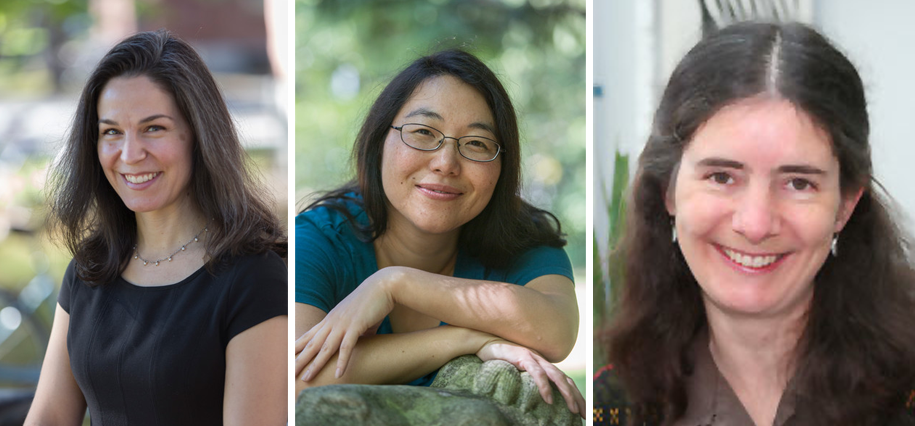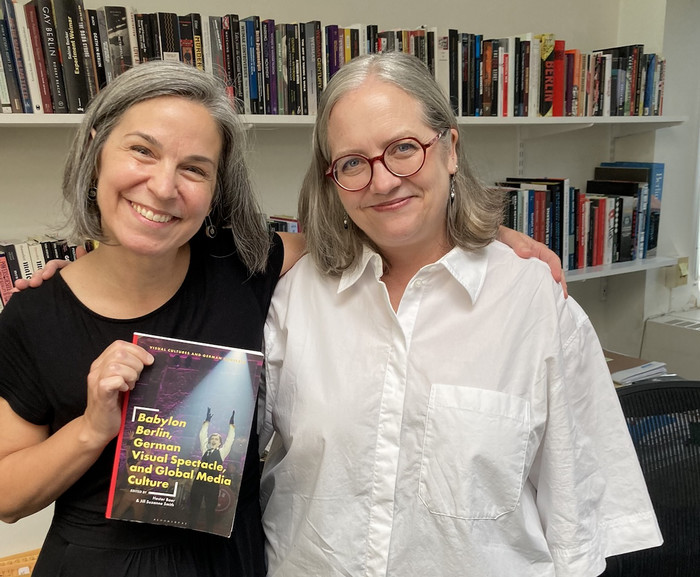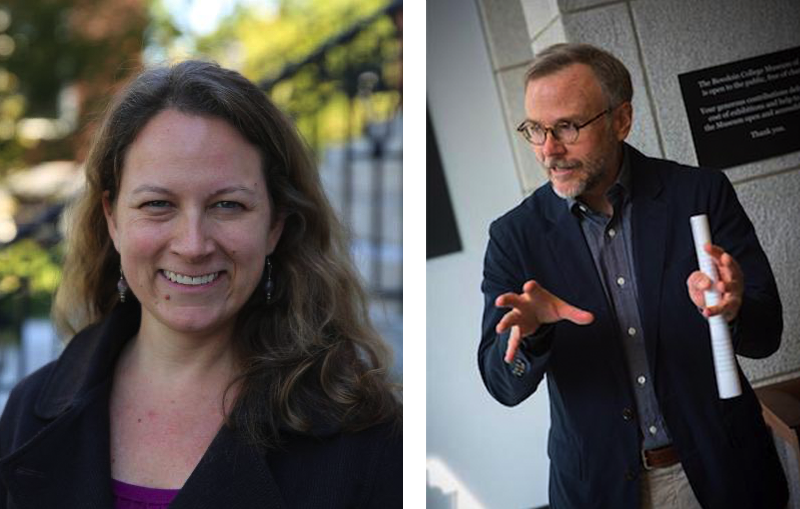Invited Speaker Reflects on Germany 25 Years After Unification
By Katherine Churchill '16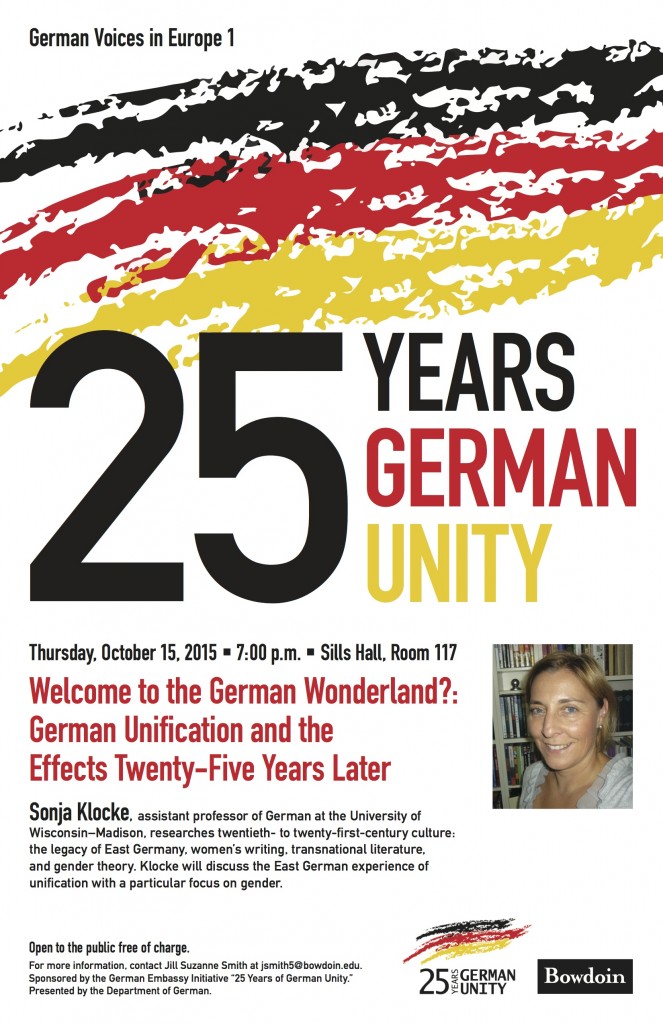
An academic whose focus includes East Germany and gender theory recently visited Bowdoin to give a talk on the effects of unification 25 years after the historic joining of East and West Germany.
The lecture by Sonja Klocke, an assistant professor of German at the University of Wisconsin-Madison, was the first of a series of events planned by Bowdoin’s German Department this year to feature contemporary German voices.
Klocke began her talk by showing a series of graphs depicting current social and economic divisions between former East Germany and former West Germany. She used these charts to highlight the economic disparity between the two parts of the country. East Germany suffers from high unemployment, 12 to15 percent, compared to West Germany, where it is around 6 percent. Klocke added that East Germany’s economy has been fairly stagnant since the 1990s.
However, Klocke juxtaposed these discouraging figures with the fact that former East Germany has a much lower pay gap between men and women than former West Germany. In East Germany, women earn only 6 to 7 percent less than men, whereas women in West Germany earn almost 24 percent less. While former West Germany may be a more fruitful area economically, Klocke argued that former East Germany is and has been an environment with greater gender equity.
Following her socioeconomic comparison, Klocke described a recent visit she made to an exhibition in Berlin on Germany’s reunification process. She said the show focused on the cultural changes wrought by reunification on language, media, property, politics and other areas. East Germans had to learn 2,000 to 3,000 new words following unification. She also noted that the East German media has been almost entirely replaced by West German media. Klocke ended her lecture with the phrase, “Unification has not happened yet.”
The talk was sponsored by the German Embassy initiative 25 Years German Unity and Bowdoin’s German Department.
